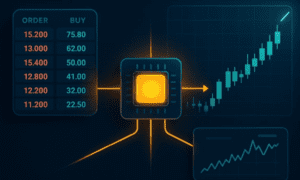Futures trading, a dynamic and potentially profitable endeavor, involves speculating on the future price of various assets, from commodities like gold and oil to financial instruments like stock market indices. While the allure of significant gains can be captivating, the complexities of futures trading necessitate a strong foundation of knowledge and skills. This is where futures trading learning courses come into play, offering aspiring traders structured education to navigate the intricacies of this fast-paced realm.
Building the Basics
The first key phase of any futures trading learning course revolves around building a strong understanding of the fundamental concepts. This includes comprehending the mechanics of futures contracts, learning how leverage works, and grasping the nuances of margin requirements. Aspiring traders are introduced to the various types of futures markets, including commodities, currencies, and interest rates. They delve into the concepts of long and short positions, discovering how to profit in both rising and falling markets. A solid grasp of these foundational elements is essential before venturing further into the world of futures trading.
After mastering the basics, many traders opt to further their education by enrolling in a day trading course to learn about the quick, intraday strategies essential for short-term trading success.
Technical and Fundamental Analysis
Technical and fundamental analyses are the twin pillars of successful futures trading strategies. Learning courses dedicated to futures trading often offer comprehensive modules on both these aspects. Technical analysis equips traders with the skills to interpret price charts, identify trends, and recognize crucial patterns. Traders delve into indicators like moving averages, Relative Strength Index (RSI), and Bollinger Bands, understanding how these tools can inform their trading decisions.
Conversely, fundamental analysis teaches traders how to evaluate the underlying factors influencing futures prices. This involves analyzing supply and demand dynamics, geopolitical events, economic data releases, and more. A well-rounded futures trading course ensures that traders can merge these two approaches, enhancing their ability to make informed predictions about market movements.
Risk Management and Psychology
Futures trading is not only about predicting market directions; it’s also about effectively managing risks and mastering the psychological aspects of trading. A reputable learning course devotes significant attention to these critical aspects. Traders learn how to set stop-loss and take-profit levels, manage position sizes, and develop risk management strategies to safeguard their capital. Moreover, courses delve into the psychology of trading, addressing issues like emotional discipline, patience, and resilience in the face of losses.
Embarking on a journey in futures trading without proper education is akin to sailing into uncharted waters without a map. Futures trading learning courses provide the essential compass to navigate these turbulent yet potentially rewarding markets. By mastering the basics, understanding technical and fundamental analysis, and honing risk management and psychological skills, aspiring traders can position themselves for success. However, it’s important to recognize that futures trading, like any financial venture, carries inherent risks, and no course can guarantee profits. Yet, armed with knowledge and a strategic approach, individuals can enter the world of futures trading with greater confidence and competence.



































